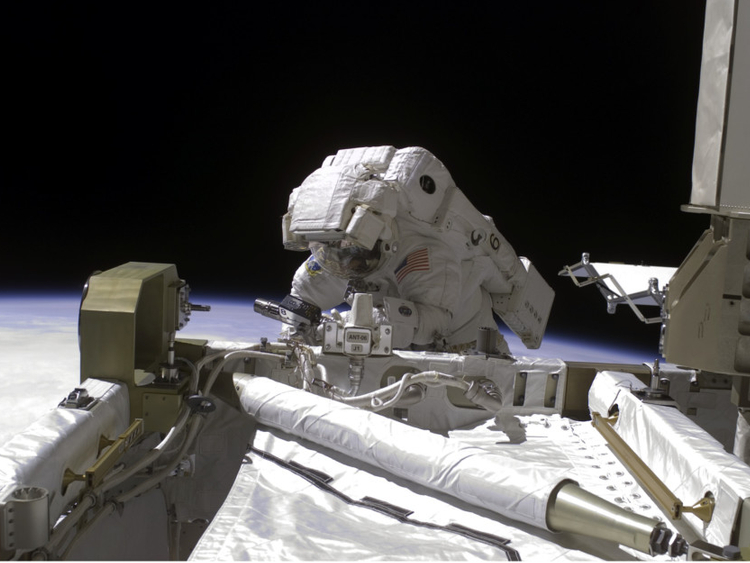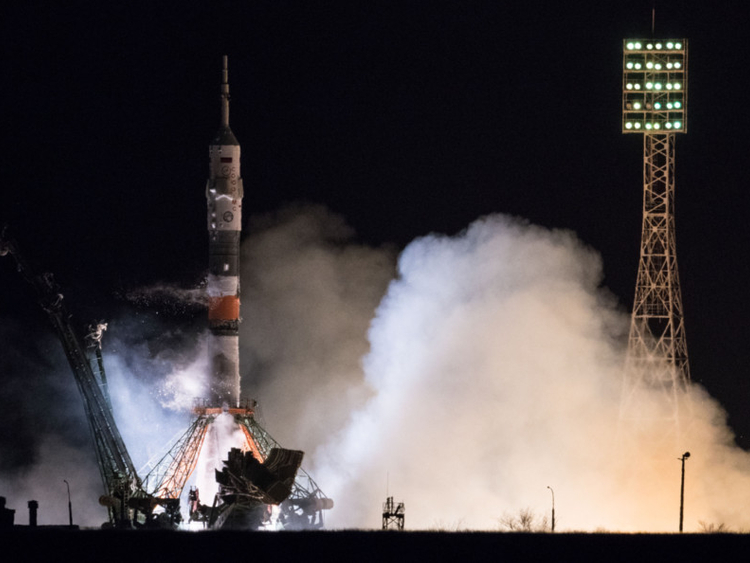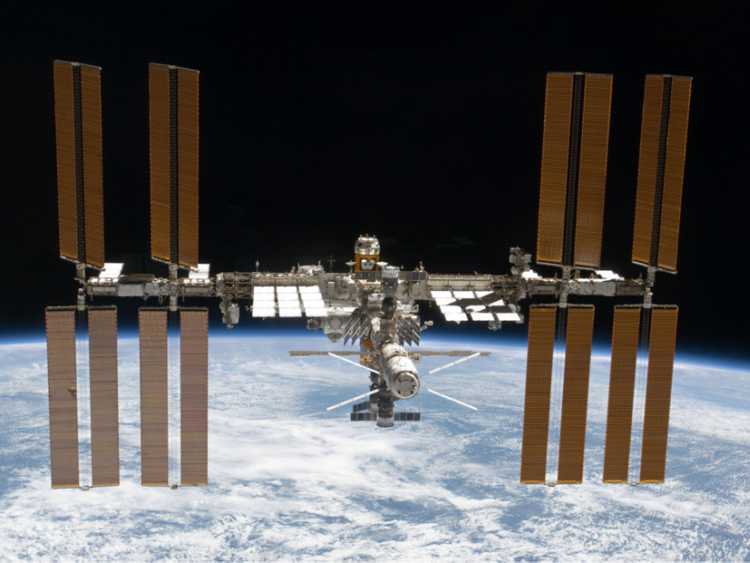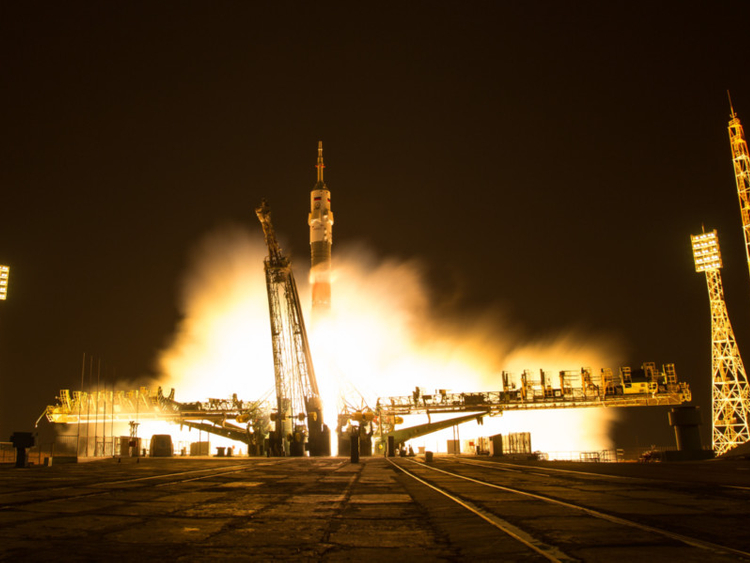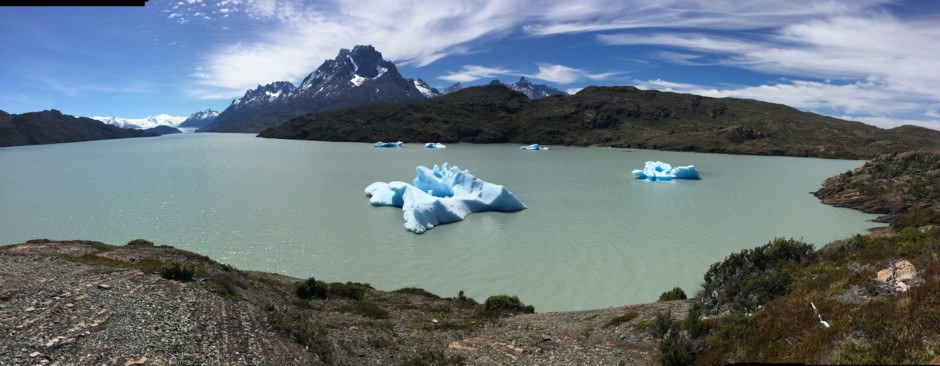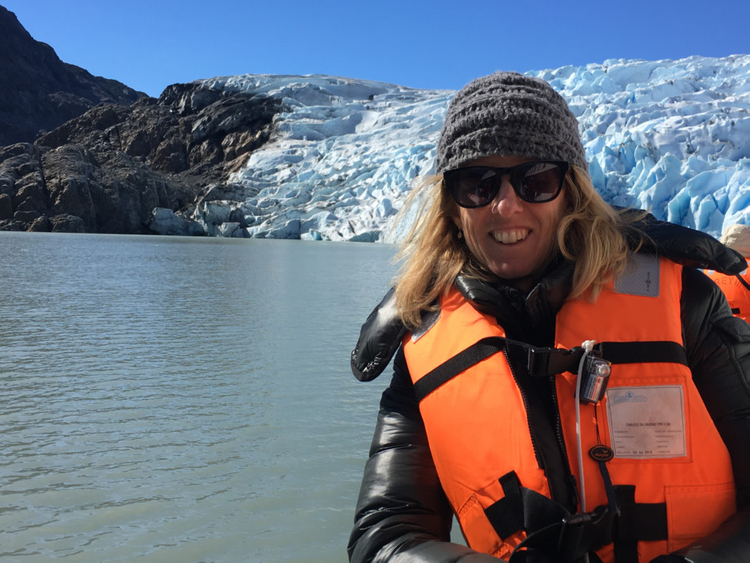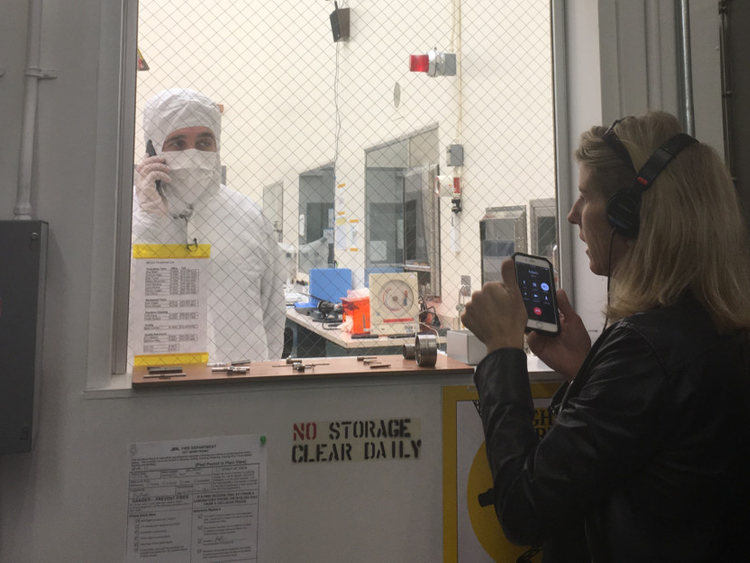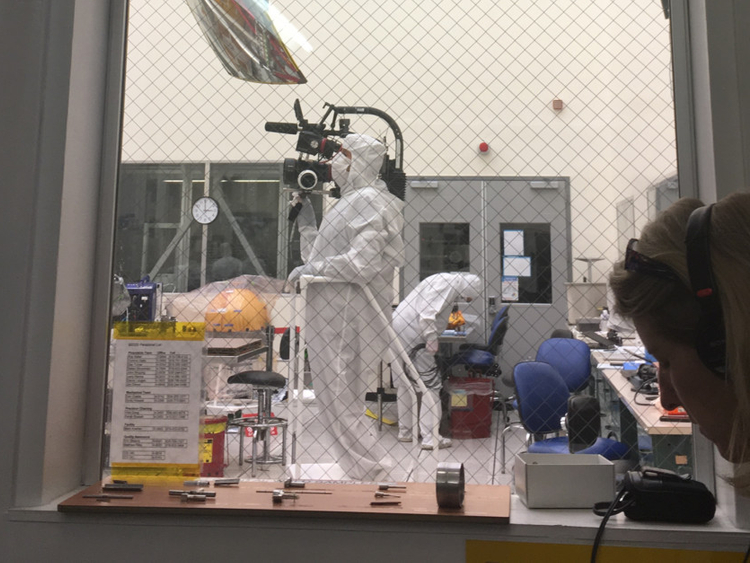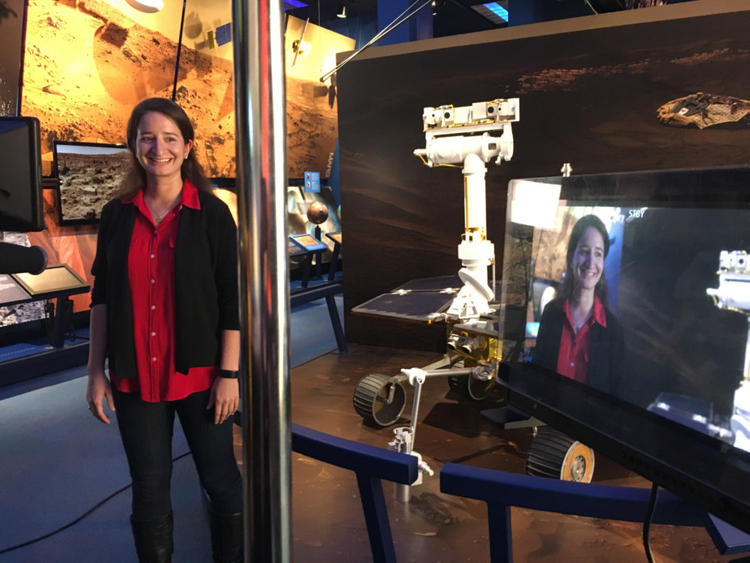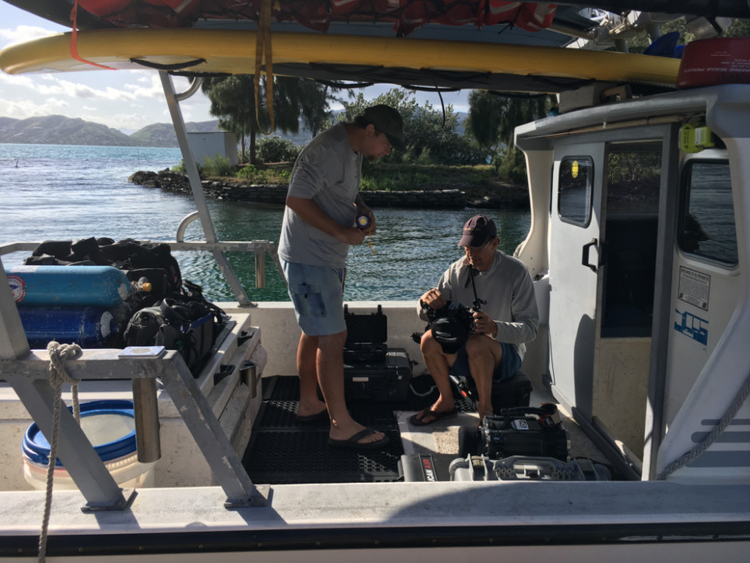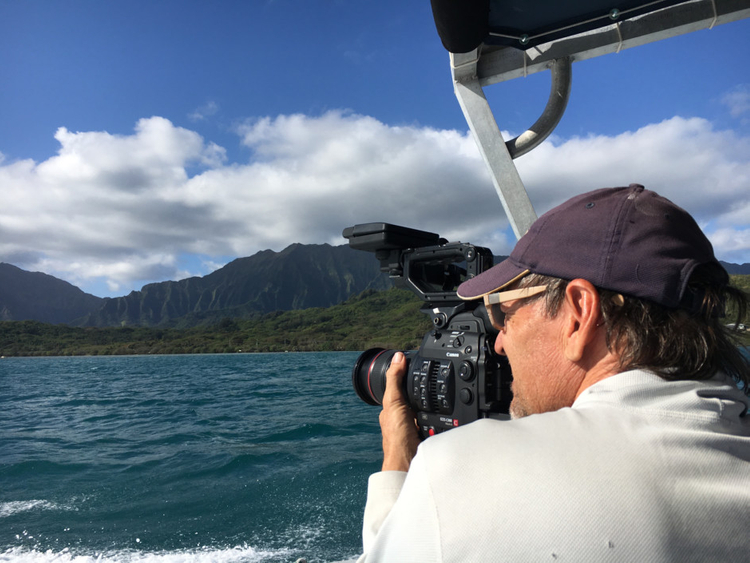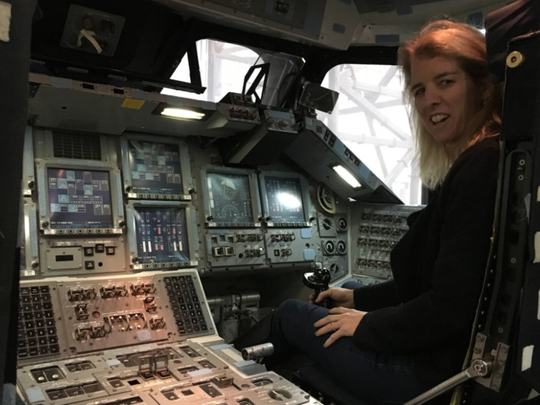
A Discovery Channel documentary titled Above and Beyond: Nasa’s Journey to Tomorrow examines all the ways in which the agency has changed people’s lives over the past 60 years.
Directed by Oscar-nominated filmmaker Rory Kennedy, who is the niece of late US president John F Kennedy, the film will premiere on October 14 in the UAE.
“It’s pretty mind-boggling and exciting to think about all that we’ve learned in these last 60 years. Prior to Nasa we didn’t have rocket ships that could go outside of our atmosphere, we had never sent a man up into space. The knowledge of our solar system was quite limited,” Kennedy said, speaking over the phone ahead of the film’s release.
‘WE CHOOSE TO GO TO THE MOON’
According to Kennedy, Nasa has attempted for years to answer basic questions we ponder as human beings, such as where we come from, whether we are alone in the universe and what will become of us.
“I was particularly interested in this subject matter because of my uncle John F Kennedy’s involvement and leadership in getting us to the moon, and his extraordinary speech at Rice University in 1962, which I think is one of his all-time great speeches,” said Kennedy.
The speech in question is one where JFK famously declared, “We choose to go to the moon in this decade and do other things, not because they are easy, but because they are hard.”
At the time of this assertion, there were no such rocket ship capabilities to speak of, and no man had gone to outer space, which made JFK’s goal to land on the moon before the decade was over all the more outlandish, according to his niece.
But on July 20, 1969, Neil Armstrong became the first man to land on the moon.
“[John F Kennedy] had the innovation and the leadership and the vision, but Nasa had to do the work — they had to build the rocket ships that would not only get us to the moon, but then bring [us] back, most importantly,” said Kennedy.
CREATING ‘ABOVE AND BEYOND’
In making this documentary, Kennedy wanted Nasa’s historic visuals to inspire awe in her viewers. But it was no easy feat to summarise 60 years of scientific discovery into one documentary.
There was also the fact that Nasa has 10 different locations, and each had their own archive houses. Kennedy worked closely with an accomplished team of archivists to curate the best footage.
“It was also a bit of a fun scavenger hunt, to research through all these incredible images and pull them together,” said Kennedy.
The result was somewhat of a personal essay for Kennedy, due to her rich ties to Nasa’s history.
“As a filmmaker, I like to have a relationship with the audience that’s very transparent. I felt it was important to position myself as John F Kennedy’s niece so that it didn’t come across as simply an objective point of view,” she said.
Kennedy’s previous films have varied greatly in subject matter, from the Emmy Award-winning political documentary Ghosts of Abu Ghraib (2007), to the more personal non-fiction film Ethel (2012), which followed Kennedy’s mother, Ethel Skakel, and the aftermath of the assassination of her father, US Senator Robert Kennedy, when she was only six months old.
“Every film I’ve ever made has a new set of challenges and difficulties. In every single film I make, I think, at some point in the process, ‘Oh my God, this is a disaster, what was I thinking? I shouldn’t have done this.’ But somehow, they kind of come around and the story emerges,” she said.
NASA’S MIRACLES
Nasa’s accomplishments are many, from four successful Mars rovers to exposing the truth about the health of our planet. But there are less obvious ways that Nasa touches people’s lives.
“I’m looking at a cellphone right here — and the reason we have the little iPhone cameras in there is because of Nasa and their need to make smaller cameras to go up on spacecraft and continue to document what happens up there,” said Kennedy.
The most pressing and urgent breakthrough, however, has been Nasa’s knowledge of climate change, and the long-term damage of “what we’re doing through the use of carbon,” said Kennedy.
She also commented on the government’s involvement with Nasa, and the trouble with the changing stances of each president.
“[Nasa is] controlled and governed by the executive branch and the President of the United States. That position changes every four years,” said Kennedy.
“It is difficult and it is a challenge in the way that Nasa is structured, because some of these initiatives, like getting to Mars, you really need to think through 10, 15, 20 years out in order for it to happen. And it’s hard for presidents to think that far ahead and to be invested in something that happens outside of their tenure,” she added.
A MEMORABLE TIME
Above and Beyond: Nasa’s Journey to Tomorrow took two years to make and yielded several stand-out moments for Kennedy. One of them was conducting an interview with retired astronaut Peggy Whitson while she was on the International Space Station going “17,000 miles [per hour] around Earth”; Whitson last year became the first female astronaut to command the International Space Station twice.
As for whether or not she herself has been to space, Kennedy responds in the negative, but claims it’s for the betterment of everyone if she remains grounded.
“I don’t think anybody wants me on a spaceship going to Mars. I don’t really like heights, I’m a little claustrophobic. I think I’m better off just making documentaries of everybody else,” she said.
LOOKING FORWARD
Now that the first 60 years of Nasa’s existence have been explored, what do the next 60 years look like? More eventful than one might think.
“I think the Mars mission is a serious one. I don’t know when exactly that [will happen], but they are pushing to innovate so that we could get to Mars and, importantly, get back from Mars,” said Kennedy, calling the endeavour “complicated but doable.”
Another achievement she envisions is the discovery of life beyond Earth.
“I think we’re really on the verge of finding life in the universe, and not only the universe but in our solar system. That is a mind-blowing idea. I think we’ll find life in our solar system in our lifetime, if I had to guess, and that’s exciting,” said Kennedy.
In the meantime, she hoped her film would encourage viewers, young and old, to better take care of their planet.
“The deeper we’ve gone into space, the greater appreciation there has been for this planet and the preciousness of this planet and how unique it is, and, frankly, how unfriendly space is to humans,” said Kennedy.
“We only have this planet. We have searched for life and we have searched for other planets like this, and to date we haven’t found any. I think the lesson there is, in part, to do what we can to make sure we protect this planet,” she added.
__
Don’t miss it!
Above and Beyond: Nasa’s Journey to Tomorrow airs in the UAE on October 14 at 8.25pm on the Discovery Channel on OSN (channel 500).



